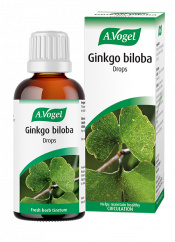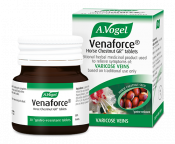What can contribute to varicose veins?
Varicose veins occur due to damage in the vein walls and valves which make them weak and prone to leaking. The problem most commonly occurs on the legs, though they may also appear in other areas such as the rectum (particularly during pregnancy).
A few factors that can contribute to the development of varicose veins are:
- Gender
- Inactivity
- Obesity
- Age
- Pregnancy
- Family history
- Working environment
- Smoking
Here you can find out more about these issues and why they may lead to varicose veins.
1. Gender
Varicose veins are somewhat more common amongst women, and one of the reasons for this is thought to be the hormonal changes that their bodies undergo during menstruation and menopause.
Oestrogen is a sex hormone responsible for triggering ovulation each month. As women approach the menopause, oestrogen levels begin to decline. These hormonal changes throughout women's lives can affect the strength of blood vessels, causing the walls of the veins to relax and therefore making them more prone to leaking. This leaking is what gives varicose veins their bulging, wrinkled appearance and dark colour. It is also what can cause them to become tender to the touch.
Other symptoms of varicose veins include:
- Dry, itchy skin
- Achy legs
- Cramps
- Fatigue
Our menopause Expert, Eileen, can tell you more about this issue in her blog Menopause and Varicose Veins: what causes them and what can you do?
2. Inactivity
Lower levels of exercise and activity are linked with varicose veins.1 One reason for this may be that inactivity increases the risk of becoming overweight, which is itself a contributing factor in varicose veins (as I discuss in my next point!).
Exercise is also crucial for encouraging good circulation, as it gets blood pumping around the body. This is why we can see circulation problems begin to develop when people don't get moving enough.
My Self-Care Tip: Tips to keep moving throughout the day
We know that a sedentary lifestyle can make us more prone to varicose veins so I have made a video with some tips on how to ensure you keep moving at regular intervals.
3. Obesity
Varicose veins are associated with obesity, particularly when the problem develops in the legs. This is partly to do with the pressure excess weight can put on the veins in the lower extremities.
Due to other risk factors like hormonal changes, women may be at particular risk of varicose veins if they are overweight.
4. Age
Varicose veins are significantly more common amongst older people. This could be to do with the toll of everyday life – risk factors for varicose veins, such as inactivity, may come to have more of an effect as we age. Also, as I have mentioned, menopause can contribute to varicose veins and this only begins to have an effect beyond the age of around 45.
On top of this, the veins generally become less elastic with age, thus causing the valves inside them to work less effectively. This may cause blood to pool in the lower legs, causing symptoms of varicose veins.
5. Pregnancy
I have talked a little about the effects of oestrogen on the structure of the veins. As oestrogen levels are high during pregnancy (particularly during the later stages) this can contribute to varicose veins.
On top of this, the veins are put under increasing pressure during pregnancy because blood flow increases in order to support the baby. Again, the result of this can be varicose veins.
Furthermore, as the baby grows, the expanding uterus can put pressure on the veins around the pelvis which can make them varicose.
So, there are lots of reasons why varicose veins can crop up in pregnancy and unfortunately, we can clearly see why it is such a common occurrence at this stage.
I would suggest pregnant women raise their legs above the level of their heart whenever possible, wear support stockings and keep moving as much as possible – even if this is just some low effort exercises like treading water.
6. Your profession
Research has shown that people who spend more than eight hours a day being sedentary (either sitting or standing) have a higher prevalence of varicose veins.2 The problem was much less likely in people who spent only four hours being sedentary each day.
This means that if your profession involves sitting or standing for hours - for example, in an office, driving, when working as a health professional or as a hairdresser - there is much more chance you'll develop varicose veins.
When standing, the problem is that it becomes harder for blood to circulate upwards (it simply goes against gravity!). When sitting, circulation can be hindered by crossing our legs, or by simply not moving for extended periods.
Keeping up gentle movement of your limbs throughout the day (particularly in the feet and legs) can help to prevent your profession from increasing the likelihood of varicose veins. Take a look at our blog 5 chair-based exercises for tips!
| Did you know? The average Brit will spend thousands of days at work throughout the course of their life. One study put the figure at as much as 3,507 days!3 That’s a lot of time to be either sitting or standing, so it’s no wonder that our professions can contribute to varicose veins later in life. |
7. Family history
Genetics are also thought to play a part in varicose veins, and so, if a parent or other close family member has suffered from the problem, it might then be more likely to become an issue for you too.
In one particular study, more than half of participants with varicose veins had a parent who experienced symptoms.4
If you know that a parent or relative has had varicose veins, you can reduce your risk by keeping active and maintaining a healthy weight.
8. Smoking
One changeable lifestyle habit that can make varicose veins more likely is smoking.
The chemicals contained within a cigarette can interfere with circulation and the function of blood vessels by making them narrower. The result is uncomfortable varicose veins.
Quick tips for reducing the chance of getting varicose veins
If you haven't already got varicose veins, this blog has probably made you at least a little concerned about getting them in the future. So, here are some super simple tips to help keep this problem at bay!
- Exercise
- Weight loss
- Elevate legs
- Avoid long periods sitting/standing
- Give up smoking
- Try compression socks
For more advice, take a look at my blog How do I get rid of varicose veins on my legs?
References
1 https://www.sciencedirect.com/science/article/abs/pii/S0749379718312030
2 https://www.sciencedirect.com/science/article/abs/pii/S0749379718312030
3 https://www.independent.co.uk/life-style/british-people-work-days-lifetime-overtime-quit-job-survey-study-a8556146.html










